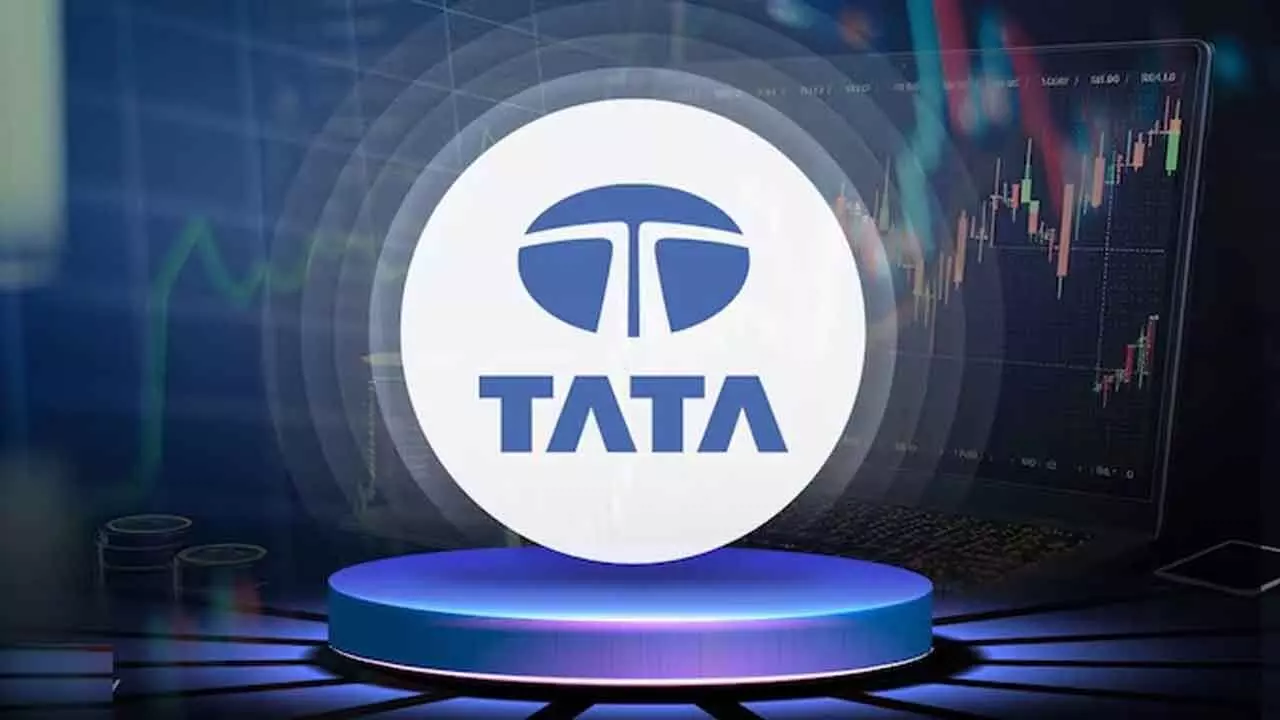Tata Sons IPO Faces ‘Conflict Of Interest’
Venu Srinivasan is Vice Chairman of Tata Trusts and also serves on RBI’s board
Tata Sons IPO Faces ‘Conflict Of Interest’

Experts say that listing Tata Sons could unlock significant value, enhance governance, improve market liquidity, and increase access to capital
Mumbai: While Tata Sons is making every effort to avoid launching an initial public offer (IPO), on the other hand, a new revelation has come to light in this matter. Actually, Venu Srinivasan, Chairman Emeritus of TVS Motor Company, is on the board of both Tata Sons and Reserve Bank of India (RBI). Therefore, this is a direct conflict of interest, feels an expert.
To avoid an IPO, Tata Sons applied to RBI to remove its Core Investment Company (CIC) tag.
Talking to Bizz Buzz, IPS officer-turned-corporate lawyer YP Singh said: “It is a settled position in administrative law that if there is presence of particular person in a statutory body, who may appear to have any conflict of interest, then the decision of the statutory body gets vitiated because there is always a possibility of an indirect or direct influence in the minds of the majority decision makers.”
To reiterate, the position of law is that even if there is any possibility of any such influence, even if there is no influence, yet the decision of the statutory body shall get vitiated. This principle emanates from the dictum - justice should not only be done but also seen to be done, said Singh.
Thus, the presence of Srinivasan in two opposing roles, would vitiate a decision of the RBI, even though he may be a non-official director and may not have exerted any influence, he said.
With less than a year remaining for RBI’s September 2025 deadline for mandatory public listing, Tata Sons, one of India’s most influential conglomerates, finds itself navigating a regulatory quagmire. The conglomerate has applied to voluntarily surrender its CIC registration, a move that has ignited debates over its regulatory strategy and sparked scrutiny within financial circles.
In response to a Right to Information (RTI) request, the RBI confirmed recently that Tata Sons submitted its application to relinquish its CIC registration on March 28, 2024. ‘The application submitted by Tata Sons for the surrendering CIC status is under examination’, the response said.
Adding complexity to the situation is the involvement of Venu Srinivasan, Vice Chairman of Tata Trusts, a key stakeholder in Tata Sons. Srinivasan is also serving on the RBI’s Central Board of Directors, a dual role that critics argue presents a potential conflict of interest. Observers suggest his position at the RBI may influence regulatory decisions that may benefit Tata Sons.
Tata Sons, classified as a CIC under the RBI’s Scale-Based Regulation (SBR) framework, must go public within 10 months to meet the deadline. However, the company’s application to surrender its CIC status is seen as a potential way to sidestep this requirement, allowing it to remain private and avoid public listing obligations.
The SBR framework, introduced in 2022, imposes stricter governance and transparency norms on systemically important non-banking financial companies (NBFCs). As an ‘upper layer’ NBFC, Tata Sons must adhere to the public listing requirement. Experts warn that organising an IPO of this scale would typically require at least six to eight months, leaving Tata Sons with a narrowing window for compliance.
Amid growing concerns about its ability to meet the deadline, reports suggest Tata Sons has repaid outstanding standalone debts, possibly as part of a strategy to facilitate the relinquishment of its RBI registration. If successful, the company would be exempt from SBR listing norms, bypassing the governance and transparency requirements mandated for listed companies.
While Tata Sons is exploring its options, some shareholders are advocating for a public listing. At the company’s most recent Annual General Meeting, Shapoorji Pallonji Group, which holds an 18.37 per cent stake, voiced strong support for an IPO. Advocates argue that listing Tata Sons could unlock significant value, enhance governance, improve market liquidity, and increase access to capital. Analysts estimate that even a modest 5 per cent stake sale could raise over Rs55,000 crore, substantially boosting the company’s financial position and market visibility.
The RBI’s SBR framework is part of a broader effort to enhance oversight of large financial institutions. Allowing Tata Sons to bypass the listing requirement could undermine the framework’s objectives and set a precedent for other ‘upper layer’ NBFCs to follow suit. Major players such as LIC Housing Finance, Bajaj Finance, and L&T Finance have already made significant strides toward compliance, highlighting the broader implications of the Tata Sons case for India’s financial ecosystem, experts said.
Arun Kejriwal, a market expert and founder of KRIS, says: “Currently, the situation is that Tata Sons has written to RBI asking that it should be granted permission to delist certain activity. Assuming the same is granted, the question of Srinivasan as a board member in Tata Sons and RBI doesn’t come under any conflict of interest.”
However, if the request of Tata Sons is not granted, any further deliberation between Tata Sons and RBI would need Srnivasan, as a board member of Tata Sons and being an interested party, to recluse himself from attending board meetings of RBI when Tata Sons’ issue is discussed, he said.

